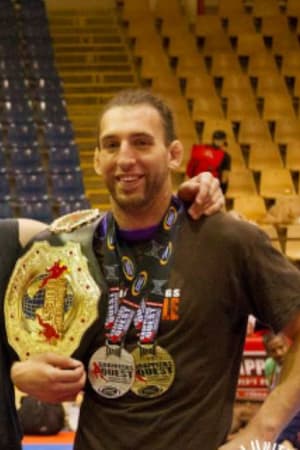
As a follow up to my piece "Choosing a BJJ School", I'd like to go a little more in depth. Specifically, into the depths of finding a Jiu Jitsu academy for those looking to compete. Whether an established competitor, or a beginner whose ultimate goal is to get out there and compete; there might be some additional concerns to look out for that I hadn't touched upon in my previous article. Whether just starting out, moving, or just looking to broaden your horizons, there are a few extra things you might want to think about. My previous article mentions location, schedule, technique, attitude, and variety. All of these attributes are imperative to a good school, but as a competitor we both know; you need more!
A coach - Most black belts do fairly well as an instructor, and any black belt worth his salt can at least teach you the basics, but even the best instructors can sometimes fall short in this department. To be a good coach, the instructor has to know how to push the athlete and prepare him for the mental and physical hurdles that come along with competition. A good coach will know your game inside and out, play to your strengths without trying to change you, study your videos and make corrections, study your opponents videos, and tailor your training in a way that ensures that you improve as a student as well as a fighter.
Pace - There are lots of top notch schools that implement very high level technique and couple it alongside traditional BJJ philosophies. Slow, composed technique paired with relaxed breathing and not "muscling" your moves are commonplace philosophies in this belief system. I can't stress this enough: This is GREAT for learning Jiu Jitsu, but when training for a fight, ALL OF THIS GOES OUT THE WINDOW! When we're training for a tournament, super-match, or even an MMA fight or self-defense situation, we have to learn to think on our feet. In the heat of competition, there's no time to think about your next move, your body just has to RESPOND. You have to execute your move as a fluid reaction, and you have to do it FAST!
The only way to prepare for this situation, is to train for it. When training for competition:
-WE HAVE TO MOVE FAST!
-WE HAVE TO TRAIN HARD!
-WE HAVE TO SCRAMBLE!
While I'll never fully advocate compromising on your technique, the end always justifies the means in competition. Putting that extra bit of force into your movement, or causing that scramble that gets you a good hard-fought two points could be the difference between victory and defeat. Sometimes we have to train to learn; sometimes we have to train to win.
Support - I've seen people go into tournaments without a coach or even a teammate present. And there's been times when I was that person. You can’t expect your teammates to jump on a plane and miss a week of work because you're competing. But if your fight is a stone's-throw away from your gym, and you don't have a coach or gym representative there for you, you need a new gym! No excuses!
A competition team - If a competitor is surrounded by other athletes who train for the same type of events, they will be push each other harder, and evolve faster. When training in an environment where everyone is training for to compete, the competition mindset takes over on a group level. A rising tide lifts all ships!
Different styles/body types - Training at a small gym has its downsides. No matter how good you are, if you compete long enough, you're going to run into a technique that takes you by surprise. That's why it's important to train with a wide variety of different styles and body types. Being the best guy in your gym and winning countless tournaments won't prepare you for the style you've never seen before. Maybe everyone in your gym plays De La Riva and you're the best in the world at defending it, what happens when you come across a master half guard player whose game takes you by total surprise? If your school doesn't have a wide variety of body types and styles for you to roll with, you'd better find an instructor who is cool with you cross training at other academies.
Currency - If you're going to be out there in the competition scene, your jiu jitsu has to be up to date. You have to watch recent fights and keep familiar with the new techniques in use. What worked back then may not be what works now. I'm not saying you have to be inverted heel hooking everybody, but you have to know what it is in order to defend it.
Know the rules - So many times, I have seen someone who was winning a match turn around and lose because they weren't clear on the rules. If you go into an event not knowing the rules, you're already setting yourself up for failure. A good competition class will go over the rules and regulations of your event, and a good coach will answer any questions you may have going in. Don't be the person who loses on points because you're not sure how they are scored. If your coach doesn't brief you on this type of information before your match, you're going to need a new coach!
I've been faced with a lot of these dilemmas personally. Having been fortunate enough to train at some of the top competition schools in the U.S., I found myself spoiled. When I came back to the west coast I bounced around tirelessly trying to find a school that fit the mold of what I needed. And when I couldn't find it, I decided to create one! I've trained with the best, I've found the formula that I needed to win, and now I'm in a position where I'd like to share it with others.
Good training ya'll!







